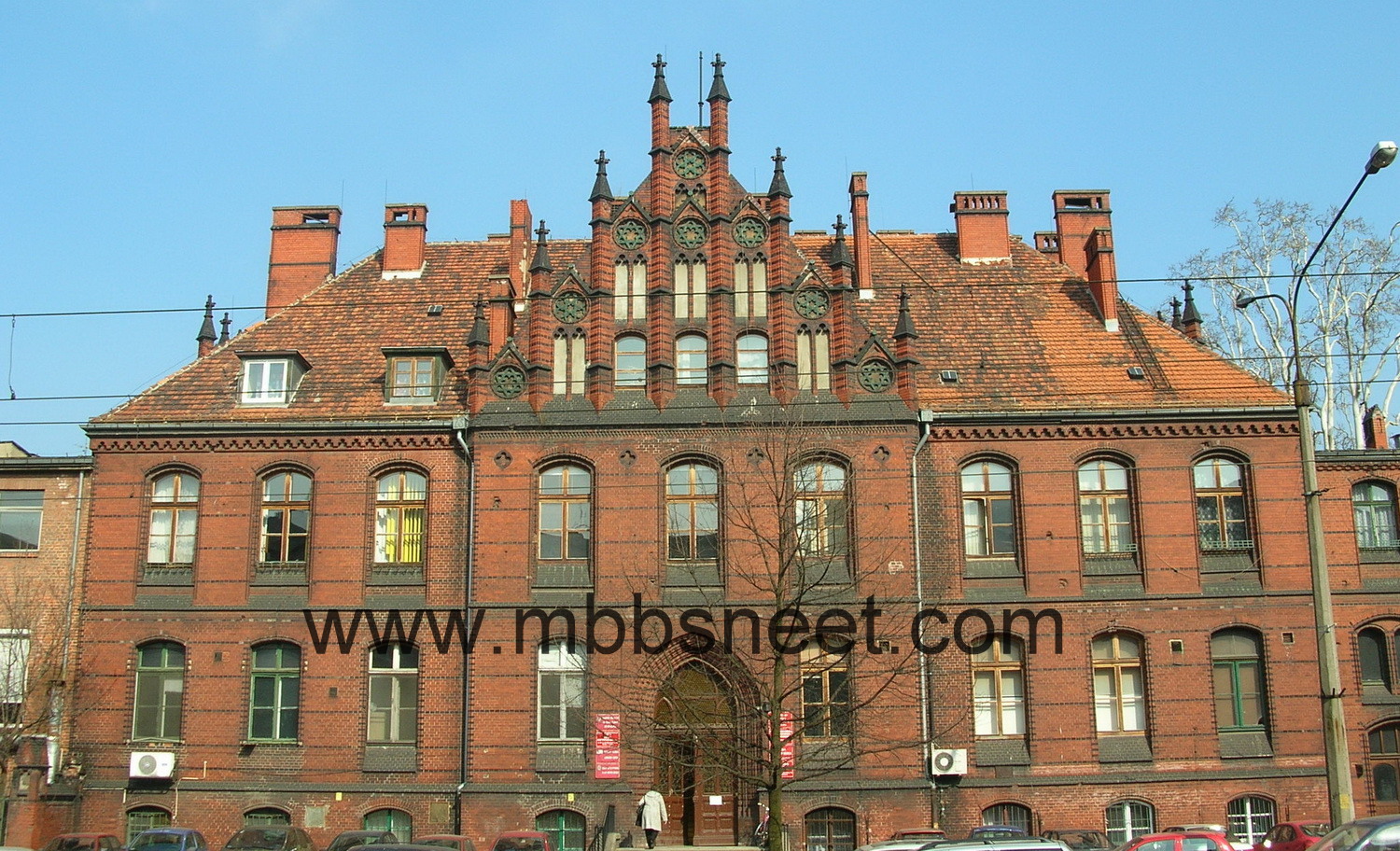Wrocław Medical University is an institution of higher medical education in Wrocław, Poland. The Wrocław Medical University consists of 5 faculties: Medicine, Dentistry, Pharmacy, Public Health and Postgraduate Education. The total number of chairs and clinics is 107. Altogether, 891 academic professors and teachers work at the Medical University and about 3 500 students continue their studies.
Wrocław Medical University has 22 international agreements of co-operation signed with other universities abroad. There is a wide exchange of students and teaching staff within the framework of the Socrates/Erasmus programme of the European Union, especially with France, Germany, Italy, Sweden, Spain, Netherlands and England.
Wrocław is a city with a rich medical tradition. The first hospital was founded in the 13th century. Medicine was first taught in 1745 by the establishment of the Collegium Medico-Chirurgicum. It was the first medical school in the city. Many famous doctors lived and worked in Wroclaw such as Alois Alzheimer – neurologist and psychiatrist, who presented his findings regarding degeneration of the brain cortex (Alzheimer’s Disease), Robert Koch – creator of modern bacteriology (Nobel Prize in 1905), Paul Erlich – pioneer of present chemotherapy (Nobel Prize in 1908).
At present Wrocław is an active centre of medical student education. The process of teaching is realised by a team of highly qualified specialists. The Medical University also performs a wide range of scientific activities and provides the whole region of Lower Silesia with highly specialised medical care.
The Faculty of Medicine is the oldest and largest faculty of Wroclaw Medical University. It was established on November 14, 1945, as one of the six faculties of Wroclaw’s University and Technical University. The opening lecture was given by Ludwik Hirszfeld. The scientific staff consisted mainly of professors from the Jan Kazimierz University in Lvov. In 1950, the Wroclaw Medical University was established, consisting of the Faculty of Medicine and the Faculty of Pharmacy.
Since then, 16,068 medical doctors and 4715 dentists have graduated. On February 12, 1958, Prof. Wiktor Bross was the first in Poland to perform open heart surgery, which he did at the Faculty of Medicine, and on March 31, 1966, he performed the first kidney transplant from a living donor. These achievements were significant in European medicine. A great number of prominent scientists have conducted research at the Faculty of Medicine, including Professors Ludwik Hirszfeld, Zygmunt Albert, Edward Szczeklik, Witold Orłowski, Stefan Ślopek and Hugon and Zofia Kowarzyk.
Two new faculties, the Faculty of Postgraduate Medical Training in 1992 and Faculty of Dentistry in 2000, were created based on the organisational structure and lecturing staff of the Faculty of Medicine. After these changes, the Faculty of Medicine assumed more of the educational duties of the University. In 2002 the Faculty received the PE-EN ISO 9001 certificate for its educational and research programs in accordance with the standards defined by the Polish Centre for Testing and Certification.
Click here for (Real Information & Real Package) about MBBS in China, MBBS in Bangladesh, MBBS/MD in Georgia, MBBS/MD in Other Countries
MBBS Exit Exam/MCI Screening Test/NEXT/FMGE, NEET.PG, USMLE, PLAB
Call/Whatsapp Mr. Arun Bapna +91 90010 99110 for personalize counseling based on Entrance Exam Score, 12th Percentage, 12th Passing Year and Budget.

